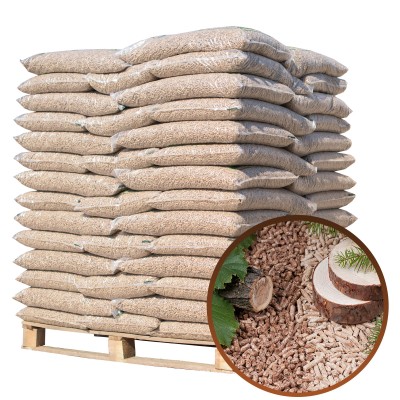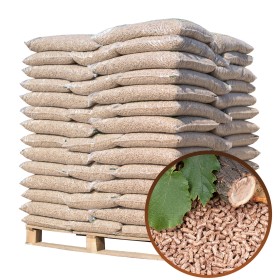
Active filters:

Beech pellets are a renewable fuel obtained by pressing virgin beech wood, known for its high density and high calorific value, which guarantees intense and long-lasting heat.
Features and Benefits:
High Calorific Value:
Beech is a hard, dense wood, which translates into a high calorific value, making it effective for heating even very cold environments. The average calorific value for a quality pellet is between 4.5 and 4.8 kWh/kg.
High Thermal Output:
Thanks to its density, beech pellets burn longer and produce more heat than other types of wood.
Low Humidity:
A quality beech pellet has a moisture content of less than 8%.
100% Virgin Wood Composition:
It is made exclusively from beech, without glues or additives, ensuring an eco-friendly, high-quality product.
Certifications:
Certifications such as ENplus A1 or A2 guarantee the product's high performance and low environmental impact.
Cost:
Generally, beech pellets tend to be cheaper than 100% fir pellets.
Versatility:
It can be used in stoves, fireplaces, and even in some cases for cooking, such as smoking pellets.
Disadvantages:
Higher Ash Production: Although residual ash is reduced, beech pellets, due to their density, can produce a greater amount of ash than fir pellets, requiring more frequent cleaning of the stove.
Fast Burning: Although beech produces a lot of heat, it can burn out more quickly.
Differences with Fir Pellets:
Density and Calorific Value: Beech is denser and has a higher calorific value than fir.
Ash Production: Beech tends to produce more ash than fir.
Aroma: Fir produces a more pleasant aroma during combustion.
In short, beech pellets are a high-performance fuel, ideal for those seeking intense, long-lasting heat and who don't mind slightly more frequent cleaning.
Active filters:
